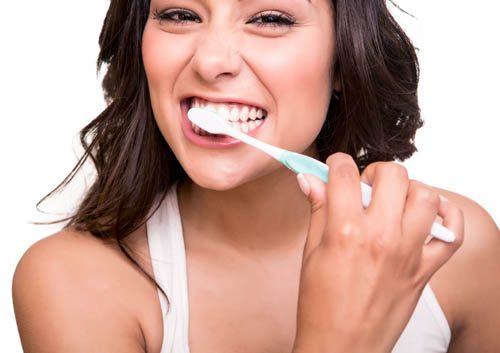April 11th, 2018

Do you feel anxious before every dentist appointment? If the answer is yes, you are not alone—more than 75 percent of Americans feel anxious when visiting their dentist. Today, Drs. Carlisle and Fabre and our team thought we would provide some tips to reduce your stress about visiting our Marrero office.
The first thing we want you to do is plan ahead. If at all possible, book an appointment at a time when you know you won’t be in a rush to get somewhere else, such as picking up your children from school or an important meeting at the office. We also recommend you avoid caffeine and sugar prior to your visit as too much of either can make you feel even more anxious, not to mention jittery.
Once you’re here at our office, take some slow, deep breaths to relax. Then, try to relax your muscles by sitting back comfortably. If you are still feeling anxious, let Drs. Carlisle and Fabre or someone on our team know. We deal with nervous patients all the time and may have additional relaxation techniques for you to try. If you’d like, we also encourage you to bring headphones and listen to music of your choice to distract yourself while we work on your teeth.
If you have additional questions about relaxation techniques, or would like to schedule an appointment, please give us a call!
April 4th, 2018

Happy Oral Cancer Awareness Month! We know oral cancer can be kind of a scary topic, but it’s worth using this opportunity to learn about the disease and spread knowledge so everyone becomes more aware. The more we know, the better we can work to prevent it!
Oral cancer is exactly what it sounds like: cancer that occurs anywhere in the mouth. It could occur on the tongue, the lips, the gums, the tongue, inside the cheek, or in the roof or floor of the mouth. Every year, more than 8,000 people die from oral cancer. It’s a truly deadly disease.
The reason oral cancer scores a higher death rate than other common cancers such as testicular cancer, Hodgkin’s disease, thyroid cancer, cervical cancer, or even skin cancer, is because it often goes undetected until it's become too advanced and has spread to another part of the body.
So what causes this devastating disease? There is no clear answer, but some potential causes have been identified. By being aware of these, we can be alert and promote prevention of this illness:
- Age: Most patients who develop oral cancer are above the age of 40. If you’re over 40, make sure your doctor checks for signs of oral cancer and that you stay on your dental hygiene regimen.
- Tobacco: Excessive tobacco use, whether in the form of cigarette smoking or tobacco chewing, can be a substantial contributor and cause of oral cancer. So that’s another reason, among many, you should avoid tobacco.
- Alcohol: Excessive alcohol consumption can put you at risk because alcohol converts into a chemical called acetaldehyde, which damages the body’s DNA and blocks cells from repairing the damage. When paired with tobacco, the dehydrating effects of alcohol make it even easier for tobacco to infiltrate mouth tissue.
- Sun exposure: Your lips need SPF, too! Repeated sun exposure increases your risk of contracting cancer on your lips, especially the lower lip.
- Diet: Not getting all the nutrients you need, from vegetables and fruits for instance, can weaken your immune system and make you more vulnerable to the disease.
Obviously, many of these causes relate to lifestyle choices, which we have control over. It's all about balance, being aware, and making small tweaks to our habits if we need to.
If you’re concerned that you may be at risk for oral cancer, give us a call to talk about a screening. And if you’ve been putting off a visit to our Marrero office, now is an excellent time to schedule one. Regular visits to the dentist can be the first line of defense against oral cancer!
March 28th, 2018

Guilt is a powerful feeling. It can keep you from doing many things, including going to the dentist. The good news is that William J Carlisle III and Associates is a judgement-free zone, and coming back (even after an extended period of being MIA) can be easier than you think. Our goal is to make you as comfortable as possible during your first appointment back with us — so here’s a little overview of what you can expect.
We’ll start with a series of dental X-rays, which are usually taken every three to five years. The set of X-rays will depend on your individual needs and it will help us get a more thorough look at what’s going on with your dental structure and keep an eye out for any prominent dental issues.
Next up will be your hygiene appointment. That appointment will consist of a review of your medical history and be followed by a thorough cleaning of your teeth. This is the perfect time to share concerns you may have about your oral health and ask us questions.
You’ll finish up with a comprehensive exam, which will review everything you covered with the hygienist. Drs. Carlisle and Fabre will go over your medical history with you and address any dental concerns that might remain. If any special treatment is needed for such issues as cavities or broken fillings, we will discuss that with you as well.
Once all that is done, you’ll head over to the front desk to talk about payment and scheduling your next appointment. And that’s it! Your first visit back is an important step toward continuing to look out for your dental health.
Just because you slacked for a little while or life got in the way, this doesn’t mean things have to stay that way! We’re happy to help you get you back on track, so schedule an appointment at our Marrero office today!
March 21st, 2018

Brushing your teeth properly removes the food particles and bacteria that can lead to tooth decay and gum disease. However, you do not want to scrub your teeth or gums heavily. A heavy hand can lead to tooth and gum erosion, as Drs. Carlisle and Fabre and our staff see all too often.
You should also use a soft bristle toothbrush to avoid damaging the surface of your teeth. Make sure the head of the brush fits in your mouth, because if it is too large you will not be able to reach all tooth surfaces. Follow these steps to ensure you are brushing properly.
- Use a small amount of toothpaste on your brush. The recommendation is a pea-sized amount or thin strip on the bristles.
- Hold your toothbrush at a 45-degree angle to the surface of your teeth, angling towards your gums. Use a circular motion on all exterior tooth surfaces, and avoid back-and-forth “scrub” brushing.
- Once you have cleaned the outer surfaces, hold the brush vertically and clean the inner teeth surfaces — the side of your teeth that face your tongue. Do not forget the inner surfaces of your front teeth.
- Finally, finish by cleaning all the chewing surfaces of your teeth. You need to maintain a gentle touch, but make sure you get into the full depth of your molars. The entire process should take about two minutes.
Drs. Carlisle and Fabre and our staff recommend changing your toothbrush every three to four months for best results. Do not forget to clean your tongue, which helps remove excess bacteria from your mouth. Special brushes are available just for cleaning your tongue, and they are easy to use.
Proper care of your teeth also requires flossing on a regular basis. Flossing can be performed before or after you brush. Following up with a quality mouthwash will provide you with even more protection. Do not be afraid to ask the William J Carlisle III and Associates team for tips on proper brushing and flossing.




